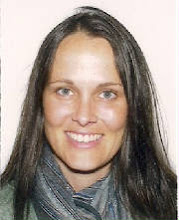
When looking for a Summer internship, the last place one might expect to end up is in Africa. Well that was the last place I expected to be anyway, but as the month of May drew to a close, I found myself within the heart of Kenya in a lovely city called Nairobi, interning for an NGO called Rural Development Connections (RDC). RDC works to help farmers find ways to improve the quality and quantity of their crops, to be able to profit more from agri-business, and promotes the completion of children's education in rural communities. Through RDC the farmers will be able to learn how to profit more from their crops on their own and not have to be dependent on RDC forever, and by pushing for the education of their children, the future generations will have the opportunity to pursue other livelihoods, if they wish, or be able to improve upon systems that their parents have developed for the farms.
The first thing that struck me when I arrived in Nairobi was how fast-paced and Westernized it appeared to be. The traffic was insane! The streets were packed full of speeding automobiles that did not seem to be following any traffic laws; at least not any traffic laws that I was accustomed to. There were many traffic lights, but no one paid any attention to those. They appeared to be more of a decoration than a safety precaution. On top of the crazy traffic, there were the Matatus. Matatus are a privatized bus system, but, in my personal opinion, anyone who chooses to ride in one of those death traps must have a few screws loose. I'd have to say the similarity of Kenyan culture to the Western culture I am accustomed to provided more of a culture shock than the African parts of the culture. I had come expecting to see people in more traditional African attire and living off the land. The last thing I had expected was to go to Nairobi and have it feel somewhat like home. Probably the scariest aspect of Kenya for me was the traffic and the Matatus. Once I had experienced that, the travel clinic's warnings about diseases and dangerous animals did not seem anywhere near as alarming as they first had. I would take facing down a lion over riding in a Matatu any day.
In Kenya, it seemed that everywhere I looked, I saw Western products being advertised. One can find Barack Obama merchandise anywhere. I even saw a man sporting a baseball cap that had the Cleveland Indian's baseball logo on it. Contrasted against this, the poverty of the country stood out in an almost glaring fashion. In Nyeri Town, the farmers live without running water or electricity. They reside in ramshackle huts that don't appear to provide much shelter. Within the city of Nairobi, there appears to be a higher standard of living, but it is obvious that people are still struggling to get by. Mothers send their children out into traffic just to beg for money. People will endanger themselves by standing in the middle of the road just to try and sell anything from a toy windmill to a kitten. I found it painful to see how hard the people work to only reap minimal benefits.
Working with RDC in Kenya gave me the chance to interact directly with the farmers who are a part of the program. My first impression of the farmers was that they are extraordinarily hard-working, very family oriented, and just friendly, happy people in general. One of the farmers, David Gachigi, stands out in my mind because he reminded me of a large, happy teddy bear. He is the type of person that you just cannot help but want to give a hug to. Even though the farmers live in such dismal condition, they never seemed unhappy. Their community is very close knit. Multiple generations of the families live and work together, and even those that are not blood-related seem to be treated like family as well. When one young man died, the entire town grieved at his passing.
While with the farmers, my job was to gather information about them for the database. That should have been an easy enough task, except for the fact that many of the farmers had not had the chance to receive a formal education and, thus, did not speak English very well or, in some cases, at all. So I was able to converse with some of the farmers, and they showed me their crops and discussed their methods of farming, but there were many times that I required a translator. Thankfully, an amazing person named Peter, who seems to be a master of languages, is a part of the Kenyan team of RDC. The amount of laughter while Peter was speaking Kikuyu, the local tribal language, with them made me feel like I was missing out on something. Therefore, that experience has made me wish to study their language so that I can eventually go back and converse with them directly.
During my stay in Kenya, I did do the tourist thing. I went out on safaris in national parks, Seeing giraffes, zebras, and warthogs close up, and getting stuck in the midst of a herd of buffalo was pretty nifty. I even got to pet a baby rhinoceros that reminded me of a hard, slimy puppy. But, in the end, I believe that my most important experience was with the farmers. It taught me something about life. Even with the barriers caused by cultural differences and languages, we can still connect as human beings with a hearty laugh and a big smile that can never be misinterpreted.


